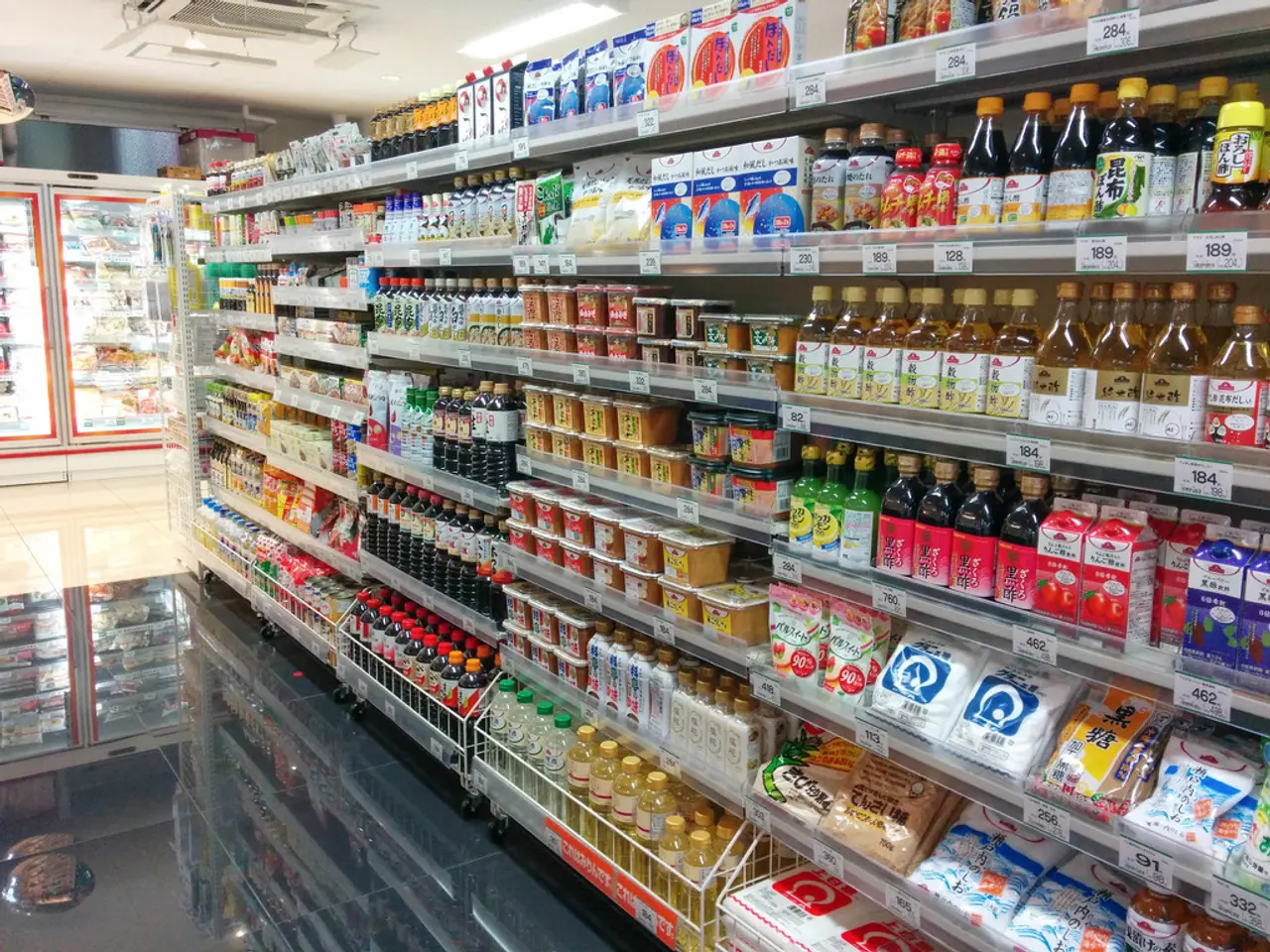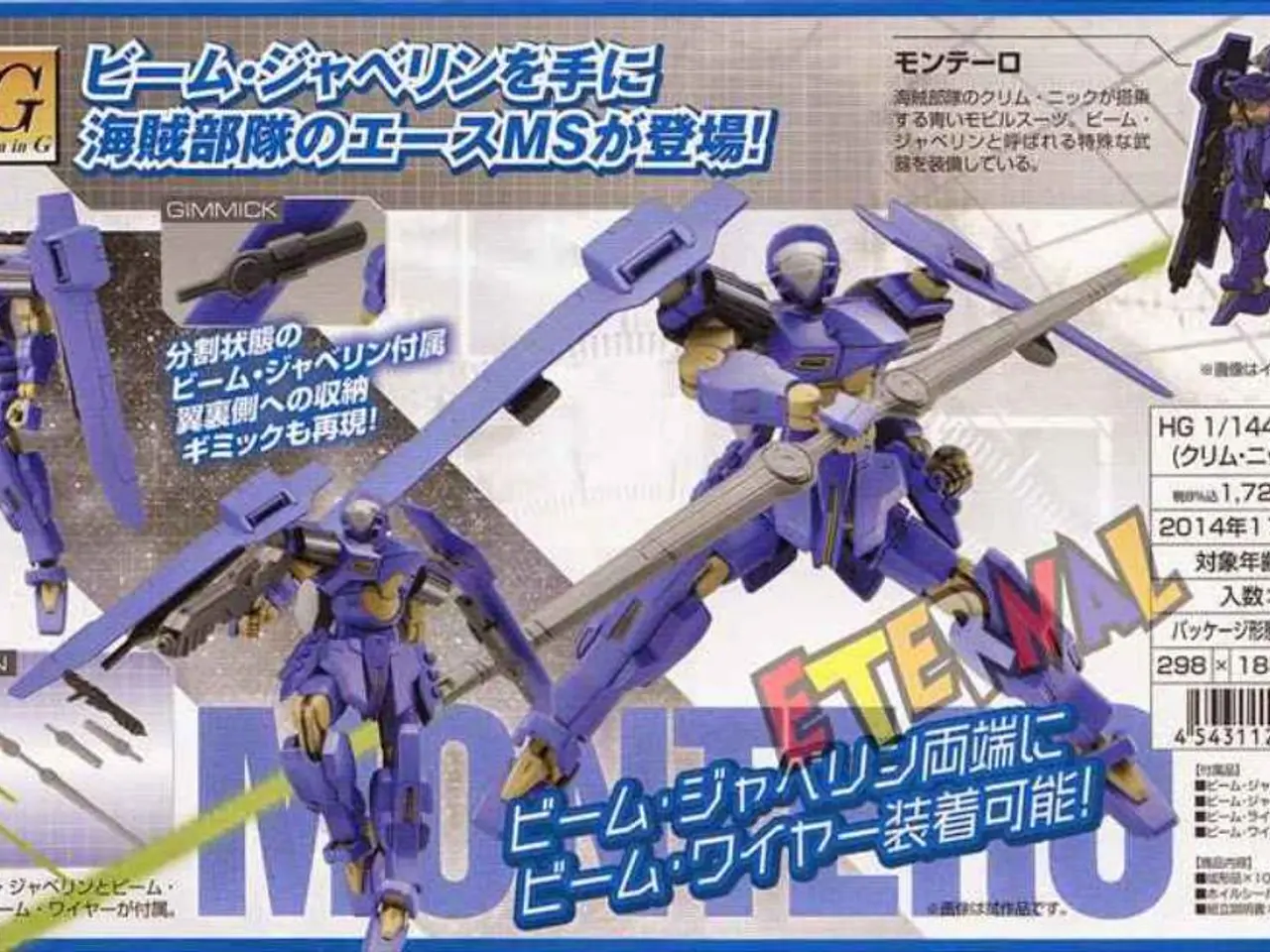Streamline Your Stock: A User-Friendly Guide for UAE Retailers on Sensible Inventory Management
In the bustling retail landscape of the United Arab Emirates (UAE), dead inventory poses a significant challenge. Unsold products that remain on shelves for over 6 to 12 months can drain capital, occupy expensive space, and limit the ability to bring in new, fast-selling stock.
To combat this issue, UAE retailers have adopted a variety of strategies to identify, understand, and clear dead inventory effectively.
- Predictive and Granular Inventory Management
Retailers are increasingly employing AI-powered predictive demand forecasting to anticipate peaks and troughs at the SKU level. This allows them to align procurement with seasonal trends and local events, reducing over-ordering and dead stock buildup. Integrating detailed point-of-sales data improves accuracy, enabling retailers to monitor product movement closely and optimize replenishment processes.
- Regular Inventory Audits and Recounts
Performing frequent manual inventory checks alongside inventory management systems helps identify discrepancies early, tracking when and why inventory quantities changed. This proactive monitoring is key to catching slow-moving or dead stock before it affects working capital and sales.
- Classifying Inventory Using ABC Analysis
Segmenting inventory by movement frequency helps retailers pinpoint dead stock (slow or non-moving items), enabling targeted clearance actions. This classification supports prioritizing items for promotional offers or bundling.
- Executing Clearance and Marketing Strategies
To clear dead inventory, retailers may launch clearance campaigns, bundle slow-moving items with faster sellers, or use additional marketing strategies to boost demand and free up storage space.
- Implementing Warehouse and Slotting Management
Organizing warehouses using slotting strategies, ranking items by movement rate, and storing fast-moving goods in prime locations increase picking efficiency and reduce holding costs. Well-managed warehouses minimize dead stock risk.
- Maintaining Safety Stock and Batch Tracking
Keeping appropriate safety stock cushions helps meet demand fluctuations without overstocking. Batch tracking ensures quality control and minimizes the risk of obsolete inventory, particularly important for perishable or regulated goods.
- Inventory Audits and Compliance in UAE Context
Given Dubai's active commercial hub status, professional inventory audits help businesses detect stock discrepancies, inefficiencies, and comply with VAT regulations—thus reducing issues related to dead inventory and loss.
These strategies collectively help UAE retailers better identify, understand, and clear dead inventory, improving cash flow and operational efficiency in a competitive market.
Prime warehouse rents in Dubai average around US$20.48 per square foot, making it expensive to store unsold products. Smart clearance strategies, such as targeted flash sales aligned with UAE holidays, bundling slow-moving products with fast-moving products, offering bulk discounts to service businesses, and moving excess stock to other channels, can help retailers make the most of their storage space.
Partnering with liquidation firms in the UAE allows retailers to recover part of the cost of unsold products, free up warehouse space, and move on from stagnant inventory without affecting brand perception. Setting auto-discount triggers in your POS or ERP system can prevent slow stock from accumulating unnoticed.
Modern POS and ERP systems offer real-time visibility, SKU-level tracking, and AI-powered forecasting to help retailers identify underperformers. Using historical data, holiday calendars, and seasonal indices can help retailers predict inventory needs accurately in the UAE.
In the UAE, early identification of slow-moving stock is critical due to fast-moving markets, cultural diversity, and high storage costs. In Dubai's high-cost retail environment, it makes sense to relocate slow stock to off-site or third-party storage, especially in lower-cost emirates like Sharjah.
Dead stock in the UAE often stems from a chain of small missteps, including poor demand forecasting, overordering due to supplier minimum order quantities, ineffective product launches, and failure to adapt fast enough to trends or cultural buying shifts. Instituting a 90/180/360-day review system can help retailers decide whether to keep, markdown, bundle, transfer, or liquidate slow-moving stock.
Investing in dashboards that visualize problem areas can make it easier to act quickly without digging through complex reports. Promoting limited-time deals through WhatsApp broadcasts or Instagram Stories can get direct attention, encourage quick buying decisions, and work especially well for exclusive or last-call items in the UAE.
Training staff to recognize aging stock and equipping them with simple criteria can help prevent stagnation from going unnoticed. By implementing these strategies, UAE retailers can stay competitive, maintain a healthy inventory, and keep their stores stocked with fast-moving, popular products.
- Leveraging Technology and AI for Inventory Management Retailers in the UAE are utilizing AI-powered demand forecasting technologies to predict sales trends and optimize their inventory, promoting efficient allocation of resources and minimizing dead stock.
- Continuous Monitoring and Auditing Frequent audits and recounts of inventory, combined with inventory management systems, help retailers spot discrepancies early, ensuring it doesn't significantly impact cash flow or sales.
- Implementing Clearance Strategies To boost sales of dead stock, retailers may employ clearance campaigns, offer bulk discounts, or bundle slow-moving items with fast-moving products, increasing demand and freeing up storage space.
- Optimizing Warehouse Management By using slotting strategies and organizing warehouses such that fast-moving goods are stored in prime locations, retailers can improve picking efficiency, minimize dead stock risk, and reduce holding costs.
- Maintaining Efficient Inventory Control Maintaining appropriate safety stock ensures the ability to meet fluctuating demand without overstocking, while batch tracking ensures quality control and minimizes the risk of obsolete inventory.
- Exploring Off-site Storage Solutions In a high-cost retail environment like Dubai, storing slow-moving stock in off-site or third-party storage locations, such as in lower-cost emirates like Sharjah, can help reduce storage costs and improve inventory management.




